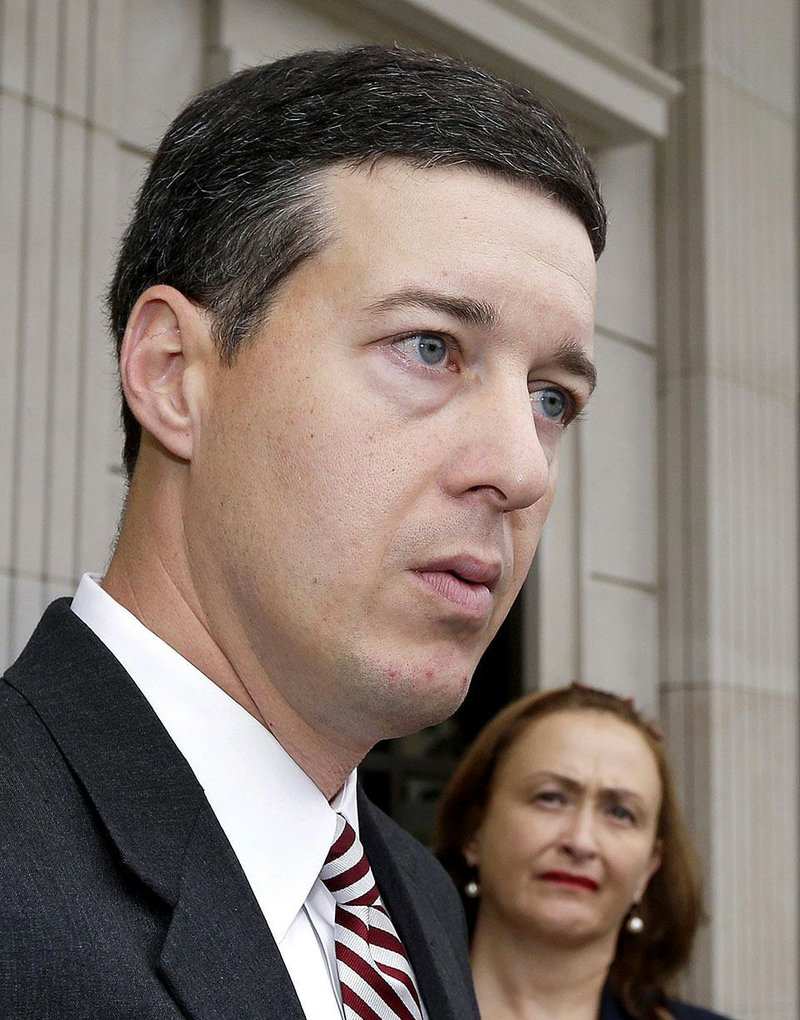Arkansas Supreme Court justices Thursday asked state attorneys whether requirements set forth in the state's voter-identification law amounted to new qualifications beyond those already spelled out in the state constitution.
RELATED ARTICLE
http://www.arkansas…">OK no-ID vote, top court urged
Minutes into the oral arguments, during the opening defense of the law, which was invalidated by Circuit Judge Tim Fox earlier this year, secretary of state's office attorney A.J. Kelly fielded questions from Justice Donald Corbin about how the requirement that voters produce valid IDs at the polls fits into the Arkansas Constitution.
The constitution has four qualifications for state voters: they must be 18 or older, Arkansas residents, U.S. citizens, and lawfully registered to vote.
Kelly said that the law is not another qualification but another means of verifying registration, a practice that the state has encouraged for a "long, long time."
Corbin said, "I'm having trouble equating 'lawfully registered' to vote with all these [voter] ID things."
Kelly responded that "It's simply a verification of registration. It's a mechanism to make sure you meet those four qualifications." It's not a new qualification for voters, he said.
Kelly pointed out that Act 595, which went into effect at the start of the year and is better known as the voter ID law, is a product of the Legislature, which is empowered by the constitution to help administer elections.
Supporters say the law will reduce opportunities for fraud at the polls.
Gov. Mike Beebe vetoed the law in March 2013, arguing the law was unnecessary. But his veto was overridden, leaving the law to be challenged four months after it went into effect.
Represented by attorneys from the Arkansas Civil Liberties Union as well as the Arkansas Public Law Center, four citizens challenged the law, claiming hardship over having to acquire acceptable ID documents to vote.
Attorneys for the state argued that Fox, who ruled in May that the law was unconstitutional, exceeded his mandate in his ruling and that he did not use the correct standard when determining whether the law was constitutional.
His finding has been stayed pending the appeal before the state Supreme Court.
At Thursday's hearing, ACLU attorney Jeff Priebe encouraged the high court to affirm Fox's ruling and find that the law improperly adds a fifth qualification, proof of identity, to the four qualifications set forth in Article 3, Section 1 of the state constitution.
He said the law represented a "sea change" in Arkansas voter rights.
Priebe argued that rights to speech, gun ownership and free worship are not reliant on an ID card. Neither should voting, he said.
Citing a case dating back to 1865, as well as poll tax-related cases from 1935 and 1964, Priebe pointed out that the state Supreme Court has often struck down acts of the Legislature that meddle with voters' qualifications.
"You can't contract or expand the qualifications of a voter as set forth," Priebe said. "Voting is the fundamental right ... the key to all others."
Kelly argued that the law has a presumption of constitutionality in that it was approved by the Legislature and that lawmakers' actions to address election issues are implicit in the constitution.
"The Legislature has to have some authority to regulate elections," Kelly argued. "Otherwise we'll have chaos."
Kelly stressed that Fox erred by applying facts to an "on the face" review of a law without a trial.
He also argued that the plaintiffs failed to demonstrate that the law has curtailed any citizen's right to vote, though the ACLU argued that more than a thousand votes were challenged during the primary election because of the new law.
"There is nothing in the [court] record before the trial court to show it's facially invalid," Kelly said. "We should have a full trial [of facts to speak to Fox's overarching ruling]."
Justice Paul Danielson pointed out that the challenge in Fox's court began as a preliminary injunction and led to Fox making a ruling on the merits of the case, and he asked why they were debating Fox's grounds for the preliminary injunction, one he characterized as moot.
He also pointed out that the state did not raise any objections to Fox's decision at the time.
"The preliminary injunction is gone. It blew past it," Danielson said.
Kelly said that his office filed an appeal as soon as it could and told the court that the argument was in their courtroom because they asked for it.
It was unclear whether the justices would return with a decision on the law's constitutionality or whether the case would be remanded back to Fox's court for a full trial.
The final day for voter registration is Monday. Early voting begins on Oct. 20.
Metro on 10/03/2014

